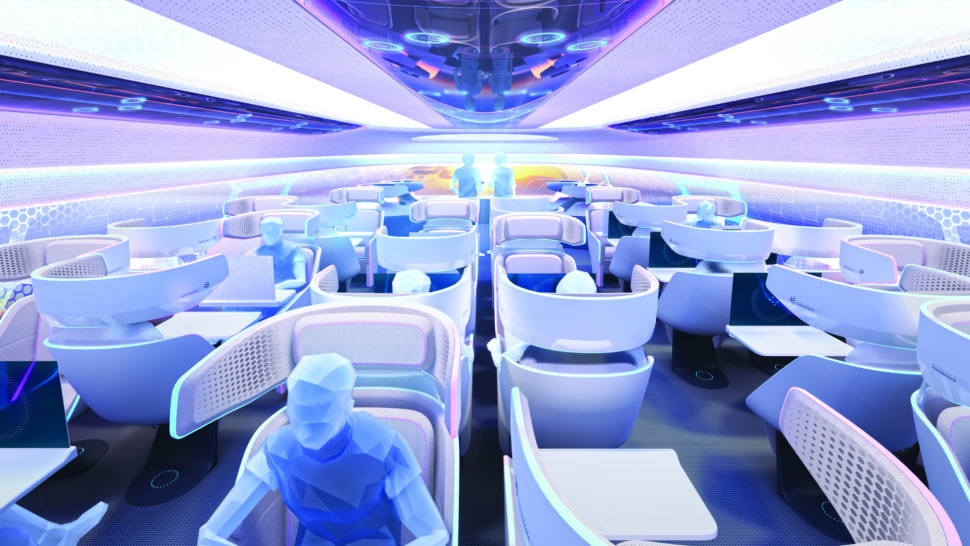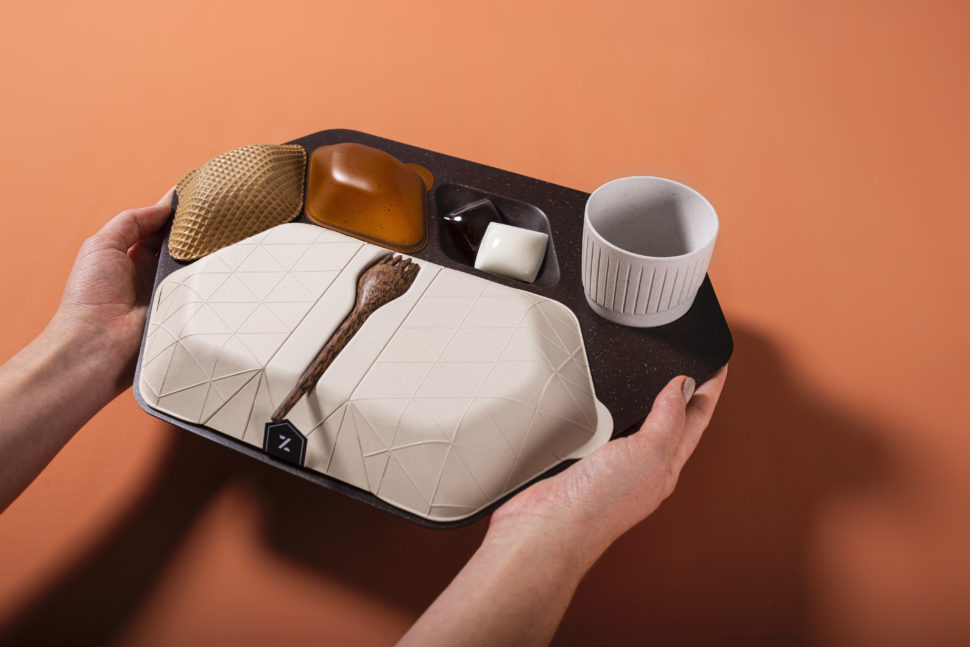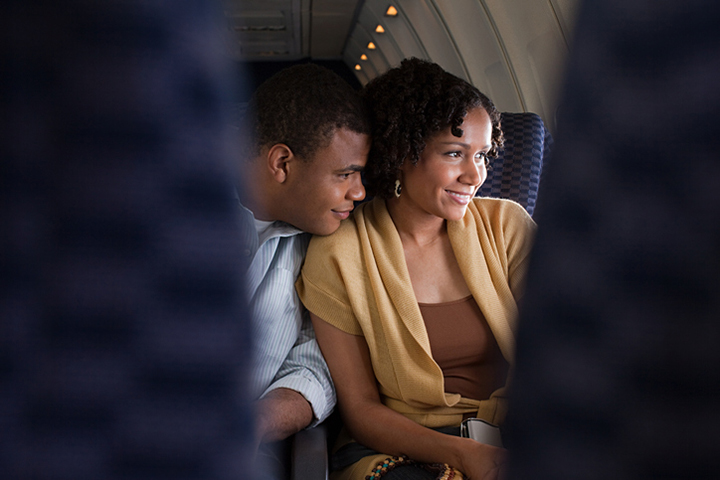From luxurious to sustainable, the Crystal Cabin Awards have announced this year’s winners for excellence in aircraft interior innovation. 100 entries were submitted in categories ranging from “In-flight Entertainment and Connectivity” to “Visionary Concepts”, giving us all a glimpse into the future of air travel.
One of the most compelling concepts tackled the issue of how to sleep in a budget airplane cabin as long-haul flights become much more popular and frequent. According to cnn.com, “Engineering company Heinkel Group presents its ‘Flex Lounge’ proposal, which suggests a flexible configuration for seat rows in economy cabins. Post take-off, flight attendants can rearrange the rows so that passengers traveling together can face one another, allowing for a more intimate, casual experience for families, groups of friends or co-workers traveling together.

RELATED: These Emerging Trends Will Change Your Travel Experience In 2020
Meanwhile, Adient Aerospace noticed the popularity of the airplane bulkhead seat and took that as it’s jumping off point for their ‘Space For All’ design. In Adient’s vision, the three seats at the front of the airplane include an extending mechanism that expands out from the lower bulkhead wall, transforming the space into a sofa-style flatbed for families to share.”
Some other notable innovations include airplane seats with optional pre-programmed recline preferences as well as overhead luggage cabins lighting up green or red, depending on whether they’re full.
RELATED: First Sustainable Booking App, Hopper, Will Plant Trees For Every Hotel & Flight Booked

Another hot topic across the travel industry is sustainability. Many of the Crystal Cabin nominees opted to tackle the eco-question with plastic reducing meal trays made of edible, biodegradable and/or commercially compostable materials as well as a proposal to implement “Greywater Reuse Units” which uses water from handwashing in the basin to flush the toilet. The company who submitted the idea, Diehl Aviation, suggests this will save 550 tonnes of CO2 per year for a single Boeing 787 aircraft.
The final list of winners will be announced on March 31.
